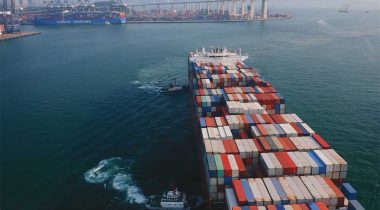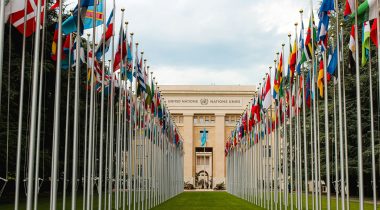
Nick Shaxson ■ Singapore spin: “we are not a tax haven.” They all say that

[vc_row][vc_column][vc_column_text]From the Twittersphere, our Director of Research:
[/vc_column_text][vc_raw_js]JTNDYmxvY2txdW90ZSUyMGNsYXNzJTNEJTIydHdpdHRlci10d2VldCUyMiUyMGxhbmclM0QlMjJlbiUyMiUzRSUzQ3AlMjBsYW5nJTNEJTIyZW4lMjIlMjBkaXIlM0QlMjJsdHIlMjIlM0VBbm90aGVyJTIwb25lJTIwZm9yJTIwdGhlJTIwJTI2JTIzMzklM0JXZSUyMGFyZSUyMG5vdCUyMGElMjB0YXglMjBoYXZlbiUyNiUyMzM5JTNCJTIwbGlzdCUyQyUyMCUzQ2ElMjBocmVmJTNEJTIyaHR0cHMlM0ElMkYlMkZ0d2l0dGVyLmNvbSUyRm5pY2tzaGF4c29uJTIyJTNFJTQwbmlja3NoYXhzb24lM0MlMkZhJTNFJTIwJTNDYSUyMGhyZWYlM0QlMjJodHRwJTNBJTJGJTJGdC5jbyUyRlNIM2c4TjFuUXQlMjIlM0VodHRwJTNBJTJGJTJGdC5jbyUyRlNIM2c4TjFuUXQlM0MlMkZhJTNFJTNDJTJGcCUzRSUyNm1kYXNoJTNCJTIwQWxleCUyMENvYmhhbSUyMCUyOCU0MGFsZXhjb2JoYW0lMjklMjAlM0NhJTIwaHJlZiUzRCUyMmh0dHBzJTNBJTJGJTJGdHdpdHRlci5jb20lMkZhbGV4Y29iaGFtJTJGc3RhdHVzJTJGNTkzNzAyNjc3MDM0NDY3MzI5JTIyJTNFQXByaWwlMjAzMCUyQyUyMDIwMTUlM0MlMkZhJTNFJTNDJTJGYmxvY2txdW90ZSUzRSUyMCUzQ3NjcmlwdCUyMGFzeW5jJTIwc3JjJTNEJTIyJTJGJTJGcGxhdGZvcm0udHdpdHRlci5jb20lMkZ3aWRnZXRzLmpzJTIyJTIwY2hhcnNldCUzRCUyMnV0Zi04JTIyJTNFJTNDJTJGc2NyaXB0JTNF[/vc_raw_js][vc_column_text]
This time it’s Singapore, and a story in the Sydney Morning Herald entitled Singapore’s government says it’s not a tax haven, it’s a value-adding hub.
Of course it’s not. (It’s only ranked fifth on our Financial Secrecy Index.)
One of our light-hearted tests for a tax haven is that it feels the need to deny being a tax haven. Nobody likes a taint: this kind of theatre of probity is deemed necessary for those jurisdictions seeking to persuade the world’s hot money to come to their shores. They are all at it.
The Australian newspaper journalist Nassim Khadem fortunately shies away from doing the tax haven’s public relations for it, and she takes alternative views into account:
“Companies such as Google, Apple, Microsoft, BHP Billiton and Rio Tinto have all admitted in recent hearings as part of the Senate inquiry into corporate tax avoidance that they are under audit by the ATO for their use of Singapore “marketing” and “service” hubs, where they route hundreds of millions of dollars of income.
. . .
Tax Justice Network spokesman Mark Zirnsak said Singapore in recent years had made “commendable improvements in transparency and a willingness to co-operate with other governments on cases of tax evasion and money http://pharmacy-no-rx.net/kamagra_oral_jelly_brand.html laundering”. “However, as demonstrated by the Senate inquiry, Singapore continues to be willing to offer special tax deals to multinational corporations that provide incentives for profit shifting and tax avoidance,” he said.”
Zirnsak of TJN-Australia is quite right to point to the Singapore-based shenanigans this Australian Senate Inquiry, which as we recently noted, is a landmark process that is the latest strong sign of fast-changing global perceptions of tax cheating by large multinational corporations.
For more on Singapore as a tax haven, see the SMH’s story entitled Singapore remains the top choice for multinational hubs, tax data shows (“Australian companies sent more than $64 billion to related parties in Singapore and Switzerland, where they pay little or no tax at all”) and Multinationals channel more money through “hubs” in Singapore, Switzerland than ever before, Tax Office says (“More than half of Australia’s trade is money being sent offshore by companies to their overseas arms – with almost a third going to Singapore and Switzerland.”)
For more longer-tem background information about how Singapore became a secrecy jurisdiction or tax haven, see our Singapore Narrative Report, written in 2013. We’ll be updating it in the coming months.
To finish, another very relevant and important tweet, this time from our chums at Global Witness:[/vc_column_text][vc_raw_js]JTNDYmxvY2txdW90ZSUyMGNsYXNzJTNEJTIydHdpdHRlci10d2VldCUyMiUyMGxhbmclM0QlMjJlbiUyMiUzRSUzQ3AlMjBsYW5nJTNEJTIyZW4lMjIlMjBkaXIlM0QlMjJsdHIlMjIlM0UlM0NhJTIwaHJlZiUzRCUyMmh0dHBzJTNBJTJGJTJGdHdpdHRlci5jb20lMkZzdGVpbnklMjIlM0UlNDBzdGVpbnklM0MlMkZhJTNFJTIwJTNDYSUyMGhyZWYlM0QlMjJodHRwcyUzQSUyRiUyRnR3aXR0ZXIuY29tJTJGbmlja3NoYXhzb24lMjIlM0UlNDBuaWNrc2hheHNvbiUzQyUyRmElM0UlMjBUaGF0JTI2JTIzMzklM0JzJTIwbm90JTIwd2hhdCUyMHdlJTIwZm91bmQlMjBJbnNpZGUlMjBNYWxheXNpYSUyNiUyMzM5JTNCcyUyMFNoYWRvdyUyMFN0YXRlJTNBJTIwJTI2cXVvdCUzQlNpbmdhcG9yZSUyMGlzJTIwdGhlJTIwbmV3JTIwU3dpdHplcmxhbmQlMjZxdW90JTNCJTI2JTIzMTAlM0IlM0NhJTIwaHJlZiUzRCUyMmh0dHAlM0ElMkYlMkZ0LmNvJTJGbDFJY2N5aGw5TyUyMiUzRWh0dHAlM0ElMkYlMkZ0LmNvJTJGbDFJY2N5aGw5TyUzQyUyRmElM0UlM0MlMkZwJTNFJTI2bWRhc2glM0IlMjBSb2JlcnQlMjBQYWxtZXIlMjAlMjglNDByb2JlcnRucGFsbWVyJTI5JTIwJTNDYSUyMGhyZWYlM0QlMjJodHRwcyUzQSUyRiUyRnR3aXR0ZXIuY29tJTJGcm9iZXJ0bnBhbG1lciUyRnN0YXR1cyUyRjU5MzcxMDE0OTEzMjUzNzg1NiUyMiUzRUFwcmlsJTIwMzAlMkMlMjAyMDE1JTNDJTJGYSUzRSUzQyUyRmJsb2NrcXVvdGUlM0UlMjAlM0NzY3JpcHQlMjBhc3luYyUyMHNyYyUzRCUyMiUyRiUyRnBsYXRmb3JtLnR3aXR0ZXIuY29tJTJGd2lkZ2V0cy5qcyUyMiUyMGNoYXJzZXQlM0QlMjJ1dGYtOCUyMiUzRSUzQyUyRnNjcmlwdCUzRQ==[/vc_raw_js][/vc_column][/vc_row]
Related articles

The elephant in the room of business & human rights
The elephant in the room of business & human rights
UN submission: Tax justice and the financing of children’s right to education
14 July 2025

How the UN Model Tax Treaty shapes the UN Tax Convention behind the scenes
The 2025 update of the UN Model Tax Convention
9 July 2025
One-page policy briefs: ABC policy reforms and human rights in the UN tax convention

Bad Medicine: A Clear Prescription = tax transparency
Tax justice pays dividends – fair corporate taxation grows jobs, shrinks inequality

Reclaiming tax sovereignty to transform global climate finance
Reclaiming tax sovereignty to transform global climate finance
16 June 2025



Singapore has a predatory tax system – it is as simple as that. Multinational companies are encouraged to move offices there with special tax deals, as low as zero tax.
To add to my comment above. What amazes me is that Singapore doesn’t consider the significant negative impact on its image. For example, when Australian’s realize there is less funding for schools, roads, universities, hospitals, etc., as a result of Singapore’s tax policies, how does Singapore believe Australian public opinion will be shaped?